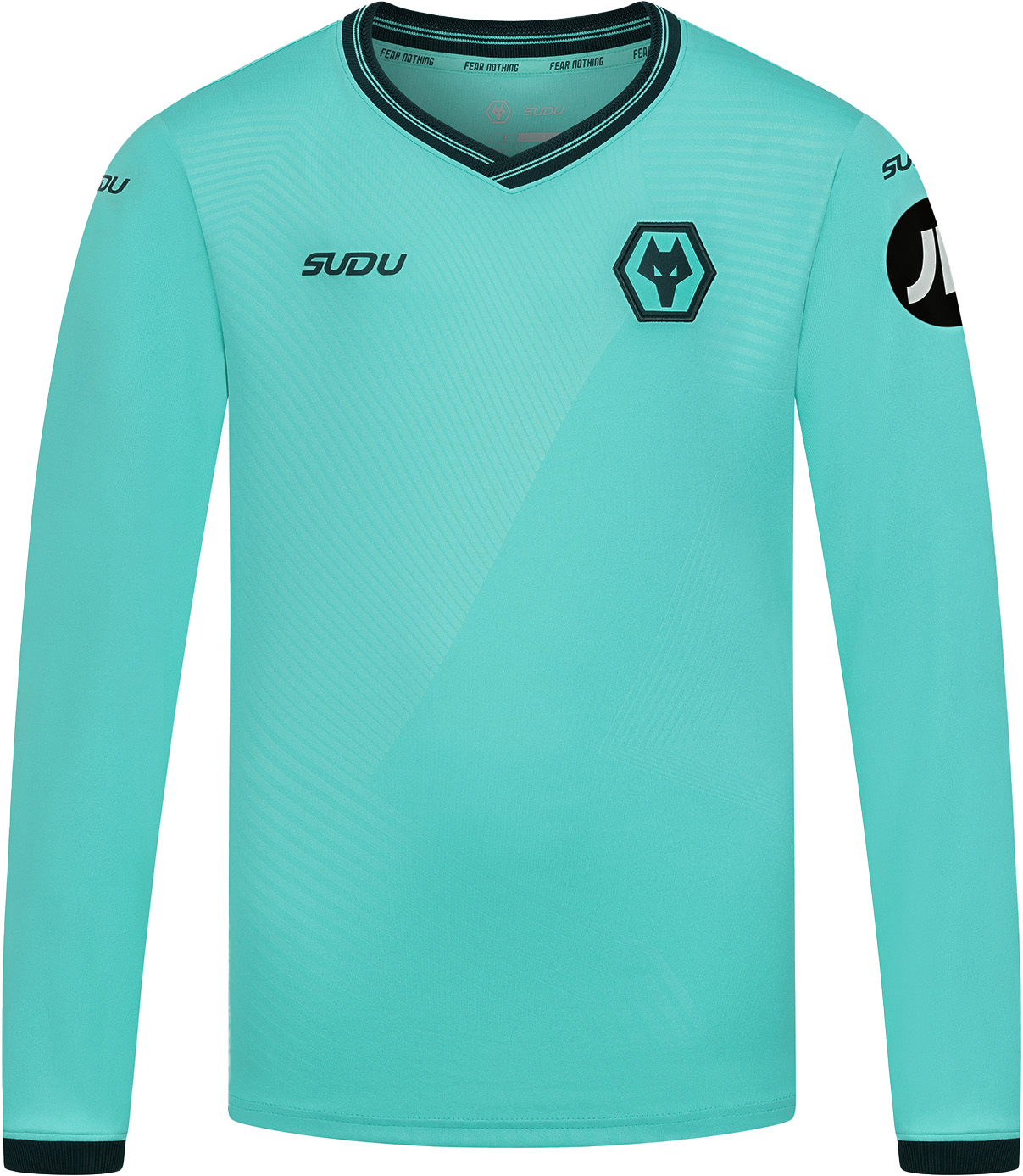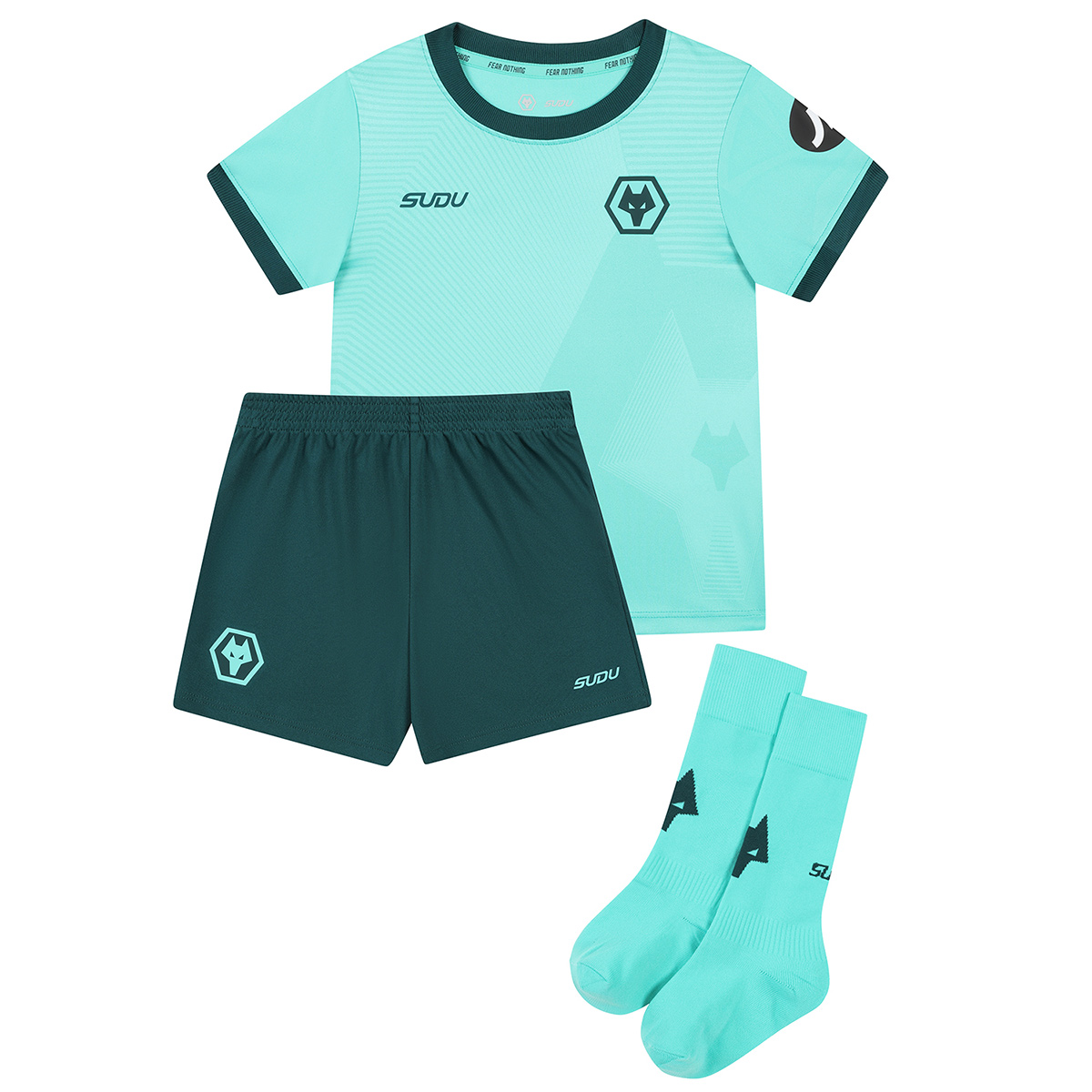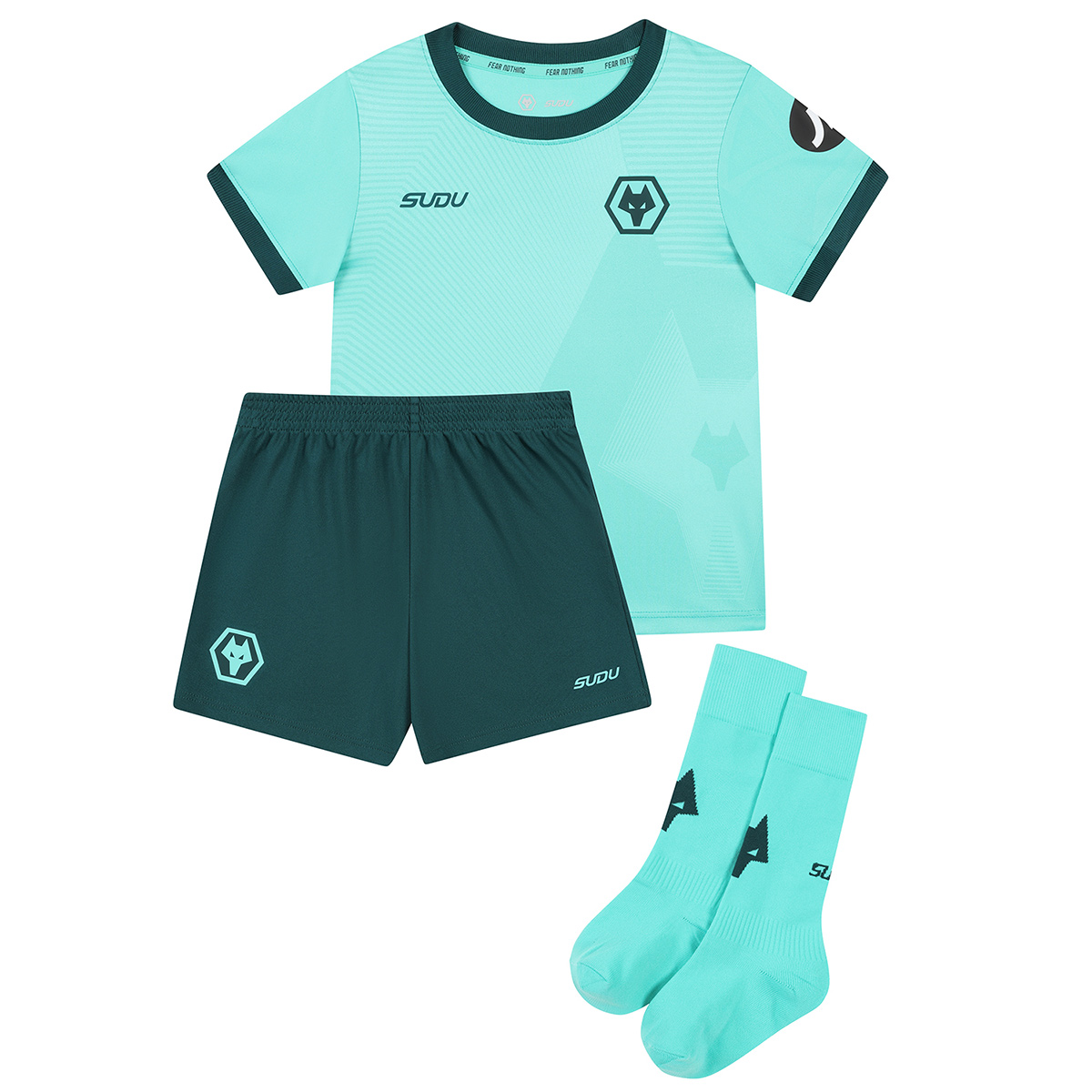WATCH
LISTEN
READ
Johnny Phillips: Matt, supporters are looking for some insight now into the finer details of building a squad and the climate you’re operating in. It’s been an exciting 12 months since we last spoke. In terms of contracts and player contracts, how quickly do you look to tie them down? Going forward, what are the benefits and the risk/reward of that?
Matt Wild: Well, I think it’s important to remember that they are an asset, just like buying a house, buying players, they’re one of the most important assets at the club. I think it won’t be a surprise that we do look to put players on long-term deals and I think that’s because we’re always looking for the right type of player. We don’t tend to take punts on players, we like to do our research and make sure that we get the player that’s going to give us the right level of commitment and, in turn, we’ll reward that commitment with a long-term investment, in terms of a long-term deal. And I think in that respect, it goes on to rewarding the player for future long-term deals. A good example is Toti Gomes; we bought him from Estoril back in September 2020, he had a successful loan period at Grasshoppers, has then come back to Wolves, has played in the first-team and was rewarded with a new long-term deal. Luke Cundle broke into the first-team and has been rewarded with a long-term deal. Max Kilman another good example of a player who’s come in, developed tremendously well, broke into the first-team, has become a regular starter and back in, I think, November last year was rewarded with a new five-year deal. So, I think we’re obviously always looking for asset protection, but it's about finding the right player that's going to suit the culture and environment that we’re trying to create at the club.
JP: And within that, is the wage structure any sort of hindrance? Does it put Wolves at a disadvantage compared to Premier League rivals? Does it restrict the type of player that can be tied down?
MW: Well, I think when you look at the big four, for example, the top four, their revenues are so much more than they are at Wolves, but I think at our club we have a sensible wage structure, which I think is fair, from the very top from the first-team, right the way down to players signing their first professional contract, and I think that just creates a good, settled atmosphere. I think it creates a good culture, a good environment, and I think that has its own monetary value really. We want players to come, they’ll be here on long-term deals, to settle and to play well in the environment that we’ve put them in. I think Joao Moutinho’s been here for nearly four years now, not just him but his family are here, they’ve really embedded themselves into the club and into life in Wolverhampton. Ruben Neves and his family have been here for over five years now and I think that’s what we’re trying to create. So, it’s not necessarily all about wages, we want people to be able to be in a good environment to perform to the best of their abilities, and if an offer comes along that’s too unbelievable to turn down, then we’ll always look at that. Diogo Jota was another good example of that, came here in 2017, got the opportunity to move to Liverpool, but I think he only moved because it was such an unbelievable opportunity for him, but before that he was very happy here and that’s what we’re trying to establish here at the club.
JP: Yeah, and I suppose if there’s a greater disparity of wages as well within the squad that creates its own problems as well?
MW: Exactly. We work with these people, you want to be able to look them in the eye and know that you’ve been fair and, like I said before, that you’re rewarding the players who are doing well, and I think we’ve had good proof of us doing that.
JP: And is there an acceptance then in what you said that when that greater offer comes in from somewhere you can’t really compete with, then you are prepared to let them go with a smile?
MW: Well, we’ll always want to keep our best players, but you have to be realistic, and I think that whilst we are trying to create that environment, we want to be competitive, sometimes offers like that come along that are too good to turn down, not just for the club, but for the player as well.
JP: What about Brexit and the effects that’s going to have on the scouting and transfer network and policies you have going forward? Is it causing problems?
MW: Well, I think there’s pros and cons. Obviously, the main disadvantage for us, where we were successful was in the European market and I think losing the ability to sign young players, in particular in the 16 to 18 age group, where we were strong, when that fell away because of Brexit, I think that affected us and again that’s had a knock-on effect because academies in England now are commanding inflated compensation fees for their home-grown talent. I think where it has given us an advantage is that it's opened up more markets. I think when you look at Yerson Mosquera, it’s a good example of signing a player from Colombia, where we weren’t able to do that previously. And I think the fact that the governing-body endorsement, the level of points that are needed to get a player in from overseas now, because it’s at quite a high level, you’re arguably buying an improved quality of player, which is great, but then, in turn, that comes at more of a cost. So there’s pros and cons for both.
JP: Yeah. Have you had to grow then the scouting network in places where it was maybe more limited?
MW: Yeah, looking at South America, now we’ve got a recruitment team literally all over the world, especially now Covid’s eased and we’re able to get our scouts on flights and around the world. It’s become more beneficial to us, you can actually get out there, watch games and not just watch them on a screen. And I think Brexit as well will have an impact, we’re yet to see it as such, but we’ve got the new FIFA regulations coming in on loans, we’re going to have a cap from next season for eight loans per season, which will reduce to six from 2024, and credit to Wolves, there’s a market for our players in the loan market. We’ve got 24, I think, currently on loan, and with these caps that are coming in, that’s going to no doubt bite us at some point and we’re going to have to be creative about how we work going forward with that.
JP: What sort of creativity can you show then?
MW: We’ll have to be strategic about who we loan where, I can see more permanent deals coming into the market, with maybe more clubs having buybacks or matching rights. If they develop them and want to try to get them back, and that’s not just us, I think other clubs will be doing the same. So I think there’s various ways that you can be creative to help mitigate the disadvantages that we’re going to be at with the new regulations.
JP: Will there be an element of learning on the job with that as well and just seeing how things develop?
MW: Potentially, although we are trying to be proactive. The recruitment team are looking at that and they’ll be looking at the players we’ve got now and how we can work it and who we can potentially loan, who we may need to transfer, and we’ll go from there.
JP: We’ve had a question about the financial structure of Fosun in general and saying the long-term commitment of Fosun, is that going to be reflected in the performance of their results, which they announced recently, which were very strong and very positive, and will it increase Wolves’ spending power?
MW: Well, I think they’ve shown their commitment to us – they wiped off the £126 and a half million worth of debt, I think that was shown in the accounts this year. I think it’s twofold: as a club, as executives of the club, we want to be financially sustainable and we want to be looking at ways ourselves to explore avenues of increasing our revenue, maybe looking at financing options, both through debt and equity, but it’s a collaborative approach, it’s very much a team effort. But one of the advantages we've got is that we’ve got really good open communication with Fosun and if an opportunity ever presented itself where we may need to stretch our budgeting model, we may need some additional resource, then they would always look at it. I’m not always saying that they would grant it, but they are very much working with us.
JP: We’ve had a question about the fan-led review of football governance – I mean, are you aware of it and the findings and what effect that will have?
MW: Yeah, we are aware of it, it’s something that’s been spoken about at length at shareholders’ meetings and there’ll no doubt be improvements, in terms of the measures that they’re going to implement ahead of the 22/23 season, and improved fan consultation will obviously be a huge part of that. I think there’s certain areas, such as more independence in terms of the Premier League’s owners and directors test, that I think will be welcome. I think in terms of the financial distribution, the Premier League have already committed to distributing £1.6 billion, I think, over the next three years down the football pyramid, but I think with that financial distribution needs to come more cost control and I think we’ll welcome that to protect the future of the game. It’ll be looked at over the coming periods in line with the forthcoming UEFA FFP regulations that will be coming into play.
JP: I mean, fan consultation is perhaps a key element of all of this, and specifically at Premier League level, when you talk of fan consultation, there’s a temptation for clubs to baulk at that and it’s not something they necessarily embrace – are Wolves quite comfortable?
MW: Well, I think across the board, it won’t just be one club wanting to do something, I think it will be very much a collective agreement between Premier League clubs and how that’s formed will be discussed at the shareholders’ meetings. There’s been a lot of discussion about shadow boards, whether they bring in some element of a fan engagement standard, I’m not too sure, but whatever gets agreed, I think it would work better if all clubs were working towards the same goal in having improved fan engagement and consultation.
JP: We’ve got some questions now on the physical infrastructure side of what’s going on at Compton in particular, which is your place of work. How have things changed since Covid restrictions have been lifted?
MW: Yeah, well, everyone’s back at work now, which is nice, not having so many conversations online, and I think it’s helping. We’d sort of got used to this new normal, people working from home, but I think we are reverting back to the old normal, which is, I think, a much better way of working. I think what we’re finding now at Compton is everyone back at work is great, but there’s a lot more staff than I remembered pre-Covid. It’s a great building, it’s a good environment, but we’re becoming too big for it, so we need to look at ways of where we can improve the facilities, just to make it a bit more comfortable, because as we’ve grown, headcount’s grown and we’re working in a building that was built in 2005. So, we’ll be looking at exploring options about how we can improve that, maybe not short term, but certainly for the medium to long term.
JP: In terms of improving the site or changing the site even?
MW: Well, I think in terms of improving the infrastructure we’ve currently got there, so maybe office space, maybe improve pitches – we’ve done four pitches now, we’ve got four Desso pitches, but we’ve still got a large plot of land there that we want to develop. And I think if we can get more grass pitches, we can get all of our Academy training on grass pitches, not on Astro, I think it will help will with recruitment, which will, in turn, help the club as a whole, so I think there’s a lot that we can be doing.
JP: There’s an impressive auditorium now at Compton, how has that helped things and are there any other big developments planned initially?
MW: Well, I think the auditorium has helped because pre the implementation of that we were having to do all of the meetings, team meetings, in the gym, which wasn’t ideal, and Bruno and his team are strong advocators of a lot of meetings, so I think having an area where you can get the players, not just individually but as a group – you know, we’ve got a great analysis team who can sit there and present certain clips, tactics, etc, to our players – so that’s really been a huge boost for the training ground. I think, as I said before, we’re sort of outgrowing it at a rate of knots. We’ll be looking to see if we can improve infrastructure, maybe through the creation of offices and changing rooms. As I’ve said before, it’s a great environment to work, but we need to keep investing and improve the facilities and we’ll always do little bits and pieces where we can just to freshen it up for when the players come back, but at some point we will need to look at delving into a bigger masterplan in terms of making Compton, the first-team building and the Academy building fit for purpose.
JP: It’s reopened for youth-team games for supporters, which they are very pleased about, will that continue?
MW: Yeah, that will continue. We’ve got Academy games there now, and not just at Compton really, we want to make our teams more accessible for all our fans. Unfortunately, not every supporter is able to come and watch a first-team fixture at Molineux; the demand is high. But we’ve had more under-23s games here this year at Molineux, we’ve had a couple of Wolves Women’s games here. We’re playing at Kidderminster. So, there’s various avenues now where supporters can come and watch our teams and we want to be more accessible. It’s exciting times, not just for the first-team, but for all our age groups.
JP: Yeah, and that brings us on nicely to the next question. We’ve had the England under-21s here, the England Lionesses here and obviously the senior team coming, how is that beneficial to the club?
MW: I think it’s great not just for the club but for the city as well and I think on the back of three good under-21 fixtures that were behind closed doors back in 2020, I think that sort of put us on the stage really. I think they were really impressed with how we operated. I’m not blowing my own trumpet, but we do put on a good fixture, and it’s very much a collective effort from everyone here at the club, every department, and I think the FA recognise that. Having the Arnold Clark double-headed fixture here in February that went really well and I think they are looking forward to working with us again. It was a dream come true to get a senior men’s fixture here at Molineux, I think the first time in over 60 years, and to then have another call to get a women’s fixture two days later. So you’ve got three international senior fixtures in one week, it’s just incredible. And, like I said before, where fans can’t necessarily come and watch a first-team fixture, hopefully there’ll be an opportunity across that week for fans to come and support the England team, whether that be the senior men’s or the senior women’s fixture.
JP: Has that whetted the appetite then for hosting more events outside of Wolves matches here at Molineux?
MW: Yeah, I think definitely and I think not just football. We hosted the Rod Stewart concert back in 2019, so I think that we will always be looking to stage more events here, because, like I said, it’s not just about Wolves, it’s the stadium here, using it to its full potential, and it’s just such a boost, I think, for this city and the community that we work in.
All 11 instalments of Ask Wolves series two are now live in video, written and audio format and can be found by clicking on the links below:


















